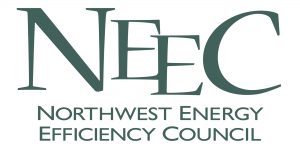The Oregon Public Utility Commission held its first workshop on the issue of cost effectiveness on July 29th in Salem. With the decline of natural gas prices, the cost effectiveness of some energy efficiency measures – especially certain residential weatherization practices in natural gas heated homes – have fallen well below a cost-benefit ratio of 1.0 when using a standard total resource cost (TRC) methodology. For over a year, the OPUC has allowed the Energy Trust of Oregon to maintain these natural gas measures with a temporary exception to the TRC test. With that exception expiring in October of this year, the OPUC is conducting a process to assess how cost effectiveness will be applied for these measures.
Prior to the July workshop, the ETO submitted a response to the OPUC outlining its recommendation on how to proceed. Using a more novel approach to the question, the ETO argues that some core set of home weatherization services has now become a utility customer expectation of service, akin to other foundational utility services associated with running its business. The ETO recommends in its response to the OPUC that this set of core services for natural gas weatherization be exempted from the TRC cost effectiveness test. In effect, this would allow the ETO to incent natural gas residential measures that would otherwise be precluded.
A number of stakeholders (including NEEC) at the July 29th workshop endorsed the idea. Support was not universal however as others, notably the Citizens Utility Board and the Northwest Energy Coalition supported the continued application of the TRC test for all natural gas measures. In their view, the assumptions in the TRC need modification and such changes might provide relief for natural gas weatherization programs to continue.
The OPUC process on this issue will continue on the following schedule:

